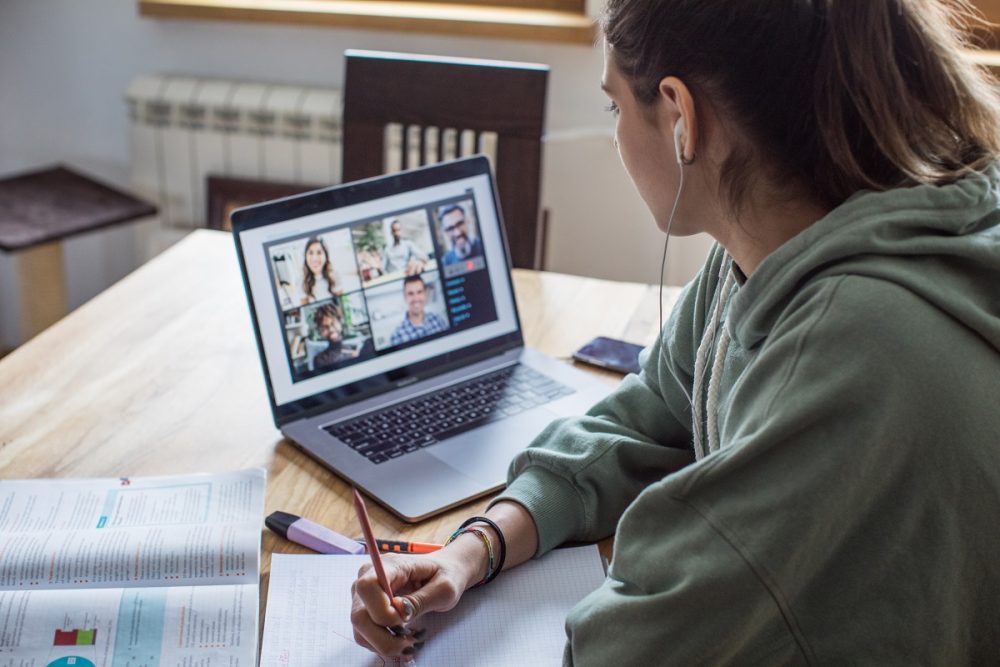
SUMMARY
In spite of pandemic-imposed travel restrictions, technology has allowed study abroad experiences to continue, and has in fact made them more accessible to less privileged students. With international travel likely to remain a luxury in a post-pandemic world, content-enriched online exchanges offer an affordable alternative for transformative global student immersion.
_______________
Knowledge has no boundaries.
As the world becomes increasingly globalized, crossing borders to access overseas education has become a rite of passage for millions of young people around the world.
The phenomenal growth in the international student population over the past two decades is attributable in large part to the rise of the middle class in developing economies and a shortage of high-quality education places in much of the developing world. The relative affordability and accessibility of air travel, as well as the leaps and bounds in the development of communications technologies mean students can be highly mobile while remaining closely connected with their families and friends in their home countries.
But the emergence of COVID-19 changed all this.
The pandemic has massively disrupted the traditional approach to international education. Travel restrictions, border closures and public health measures have led to a significant decline in international student enrolment levels in most leading host countries. Short-term exchange programs, which are often the backbone of the internationalization agenda for so many universities, have seen a particularly sharp drop.
The forecast is that it will take at least five years for international student mobility to recover to pre-pandemic levels.
Overseas experiences are critical for fostering people-to-people links across nations and provide students with the cultural smarts to forge global careers. Their absence is potentially a tragedy for the endeavor of globalization.
What are universities doing about this?
Far from passively waiting for borders to reopen, universities have been reimagining the approach to student mobility and harnessing the power of technology to deliver immersive international student experiences.
This is much bigger than just putting everything on virtual platforms. The novel approach has revolutionized access to international experiences and made global education accessible to anyone with an internet connection, rather than something available to the privileged few with financial means to jump on an airplane and spend up to a year in a foreign land. According to a survey launched by the International Association of Universities in 2020, 60% of universities have replaced physical student mobility with virtual mobility or collaborative online learning.
One prime example is the Virtual Student Exchange (VSE) program conceptualized and managed by The Chinese University of Hong Kong (CUHK) under the auspices of the Association of Pacific Rim Universities (APRU), an alliance of 61 leading universities from four continents on both sides of the Pacific. Officially launched in August 2020, the tech-driven and highly immersive VSE program has enabled thousands of students of APRU member universities to take online academic courses on a plethora of topics and participate in culturally enriched co-curricular programs as well as establish social peer networks, without needing to leave their home countries. These virtual international experiences look set to endure post-pandemic.
This type of enabling, multi-functional platform is indeed a good thing for expanding access to high-quality university education around the world and achieving one of the United Nations Sustainable Development Goals – SDG4: Ensure inclusive and equitable quality education and promote lifelong learning opportunities for all.
It is clear that, as much as we all yearn for the return of quarantine-free international travel, a simple snap back to the physical overseas experience would mean only those with adequate economic means can benefit from them. Innovative solutions to allow crucial international student exchange to thrive, despite the headwinds of this seemingly endless pandemic, provide affordable alternatives for students to acquire skills essential for the future of work and economies everywhere.
Professor Rocky S. Tuan
Vice-Chancellor and President
The Chinese University of Hong Kong